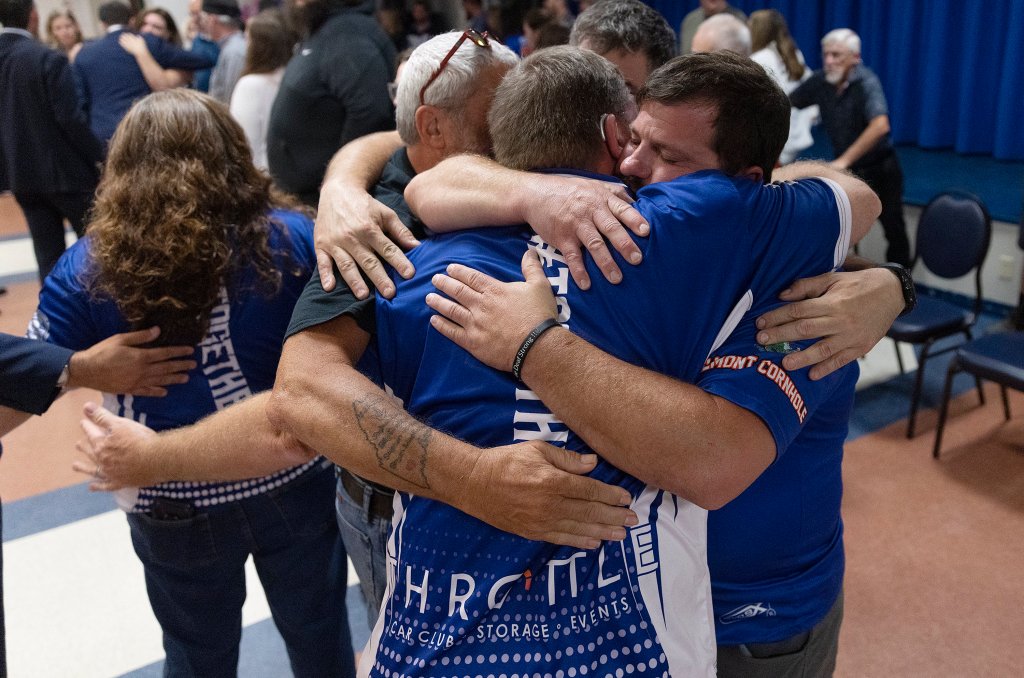
On Wednesday, in a room full of reporters and TV cameras, survivors and relatives of those killed and injured in Maine’s largest mass shooting bowed their heads in a moment of silence.
The group has become used to the silence.
Silence from the emptiness left by the loss of 18 people, killed on Oct. 25, 2023, by an Army reservist while they played cornhole at Schemengee’s Bar & Grille and bowled at Just-In-Time Recreation.
And silence, too, their attorneys said, from the U.S. Army, which they claim in a federal lawsuit filed Wednesday violated several of its own policies for preventing service members in crisis from harming themselves and their community.
Attorneys say the victims and loved ones, who are suing the federal government, have spent a year waiting for a response to these claims, which they sent to the Army in writing last fall.
“Since we served our notice, we have heard nothing,” Ben Gideon, one of the lawyers representing the group of more than 100 survivors, said during a news conference in Lewiston on Wednesday. “Not a single thing, just silence. So we have no choice but to file this lawsuit.”
A spokesperson for the Army said Wednesday that they don’t comment on pending litigation as a matter of policy.
“The Army has 109 claims regarding the Lewiston, Maine shooting and is currently reviewing and adjudicating them in accordance with current policy,” Lt. Col. Ruth Castro said in an email.
For months leading up to the shooting, the Army received and ignored a steady stream of reports that the shooter’s mental health was deteriorating, that he was threatening violence and had easy access to firearms, according to the survivors’ lawsuit.
He was then hospitalized and released on the condition that the Army rescind his access to firearms, the survivors say. Yet the Army never enforced that condition, according to the lawsuit.
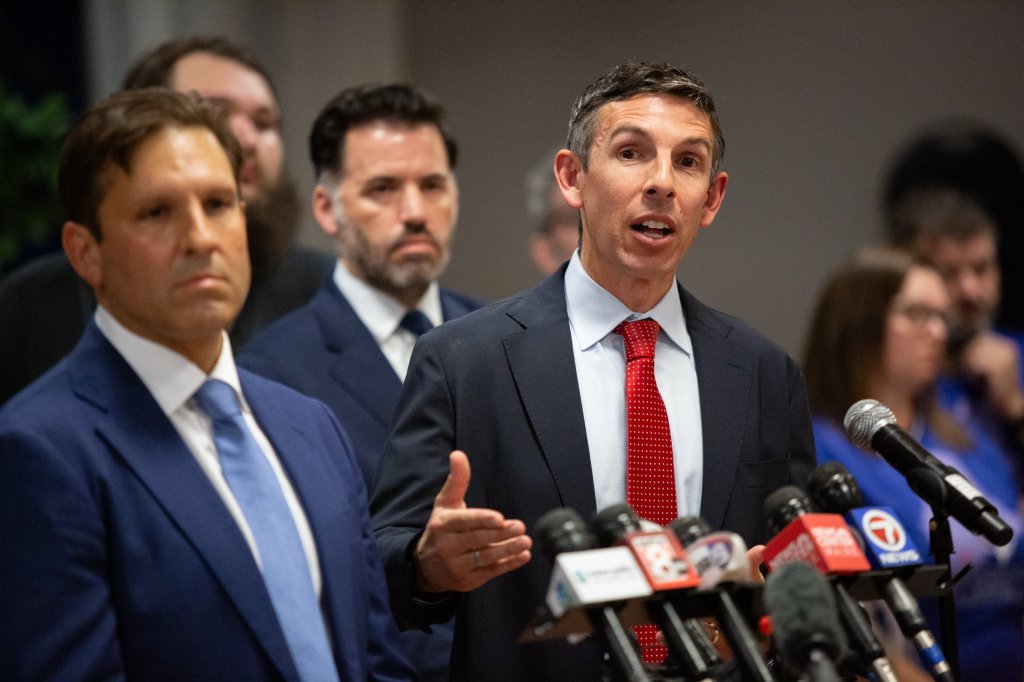
“Blatant warning sign after blatant warning sign provided opportunity after opportunity for the Army to act,” said attorney Travis Brennan, another lawyer representing the survivors in their lawsuit. “Shockingly, the army repeatedly broke its promises to protect the community it pledges to defend. … As a result of these broken promises, hundreds of lives were shattered and a state was shaken and changed forever.”
Cynthia Young, whose husband, William, and 14-year-old son, Aaron, were killed in the shooting, said the silence has made their nightmare worse.
“We trusted those in power to protect our loved ones and their inaction cost us everything,” said Young, listing the Christmases, anniversaries and birthdays that have passed without Bill and Aaron. Her son would have turned 16 this year and be learning how to drive.
During the news conference, Young said the group’s lawsuit is about accountability and prevention as much as it is about healing, though she said no one affected will be made whole again.
They hope their action against the Army, she said, will help ensure “no family should have to endure this heartache when so many signs were ignored.”
NOT A MONEY GRAB
Ben Dyer, who was shot five times at Schemengees, lost a finger and the use of his right hand.
He said he was frustrated by comments online from people suggesting the lawsuit is just about money.
“I’ll never get my hand back. I’ll never get my arm back. These people will never get their loved ones back. Money is not going to cure anything,” he said during the news conference. He added that “the legal team behind me worked countless hours for us … to get the accountability we’re looking for.”
Accountability isn’t just about justice, but also about fixing a system that Dyer said failed them. Piecing his life back together in front of his children, taking off one bandage at a time to reveal a different man, was a heartbreaking process.
“No one should ever have to do this,” Dyer said. “Physically I’m not the same, but mentally I’m stronger. And we want accountability so no one else has to live like we do every day.”
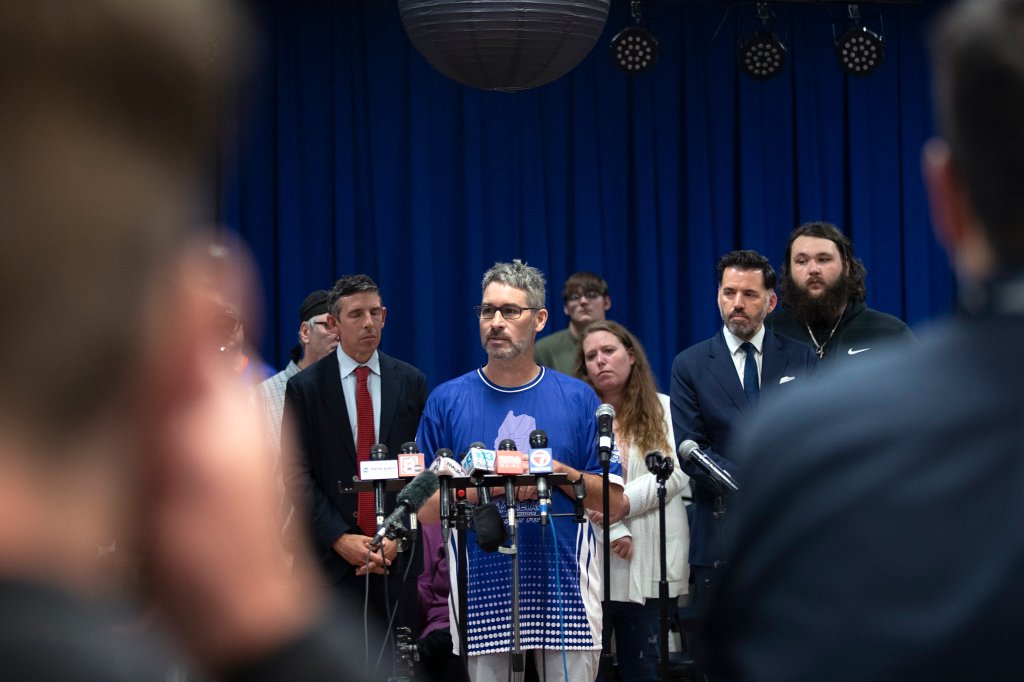
The 120-page lawsuit spells out how the survivors believe the Army willfully ignored red flags coming from the shooter, Robert Card, who trained cadets to use firearms and grenades.
Card, a 20-year veteran, had been hospitalized at Keller Army Community Hospital in West Point, New York, after threatening fellow soldiers during a July 2023 training exercise. Despite making further threats of violence and describing what officials later called a hit list, Card was discharged two weeks later.
The survivors are suing under the Federal Claims Tort Act, which can be used to sue the federal government for injuries and deaths caused by their negligence or wrongful acts. The Act comes with some unique rules. Should the case go to trial, it can only be heard by a judge. They’re also not allowed to ask for a specific amount of money or other outcomes, like policy changes or new laws.
The Army has 60 days to file a response. They could also file a motion to dismiss the case, which a U.S. District Court judge would consider before setting any other deadlines in the case.
During the news conference, where there were several American Sign Language interpreters, survivor Steven Richards-Kretlow said he had been playing cornhole at Schemengees the night of the shooting. Using American Sign Language and reading his remarks from a phone held by his wife, Richards-Kretlow, who is deaf, recalled how an ordinary night out with friends turned into a nightmare that saw him struck in the leg by a bullet and watching others around him die.
“The shooter took my friends and our loved ones away from us,” Richards-Kretlow said. “It was heartbreaking to see some of my friends who did not come out alive.”
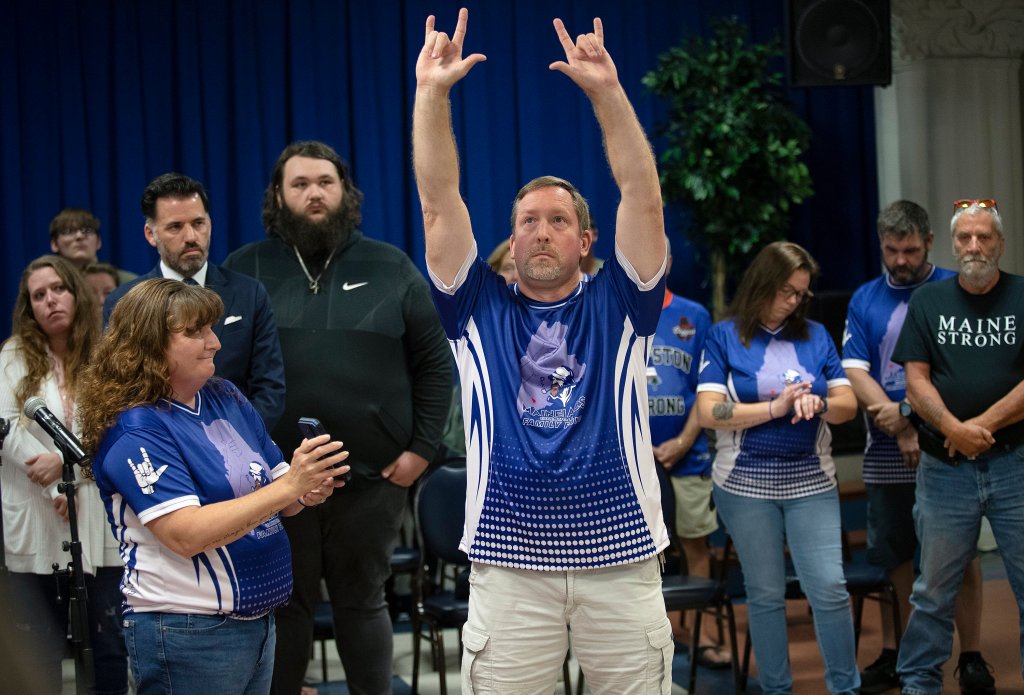
His injury took six months to heal, but he said the trauma endures, the attack having scarred not just him but also the deaf community in Lewiston and across Maine, which lost several members in the violence. He said his scar is now a daily reminder of survival and loss.
“This pain and this trauma never goes away,” he said. “We miss our friends and the loss of 18 lives daily. We’re not going to forget, and we’ll always honor our 18 hearts.”
Richards-Kretlow said the lawsuit demands accountability and is a push for changes that would prevent another tragedy. He ended his speech, hands raised in the “I love you” sign as he joined the rest of the families.
OTHER CASES AND OUTCOMES
The survivors’ attorneys cited nearly a dozen other tragedies involving service members in the lawsuit. They said these events should have made the Army aware of its responsibility to deal with Card.
Several of those cases have resulted in litigation, ending in large sums of damages to victims and new laws and policies. Two high-profile law firms that have dealt with those cases are also representing the survivors in Lewiston.
That includes a case in Sutherland Springs, Texas, where former Air Force member Devin Patrick Kelley killed 26 people during a church service in 2017. The Air Force was ordered in 2022 to pay more than $230 million to the survivors and victims’ families.
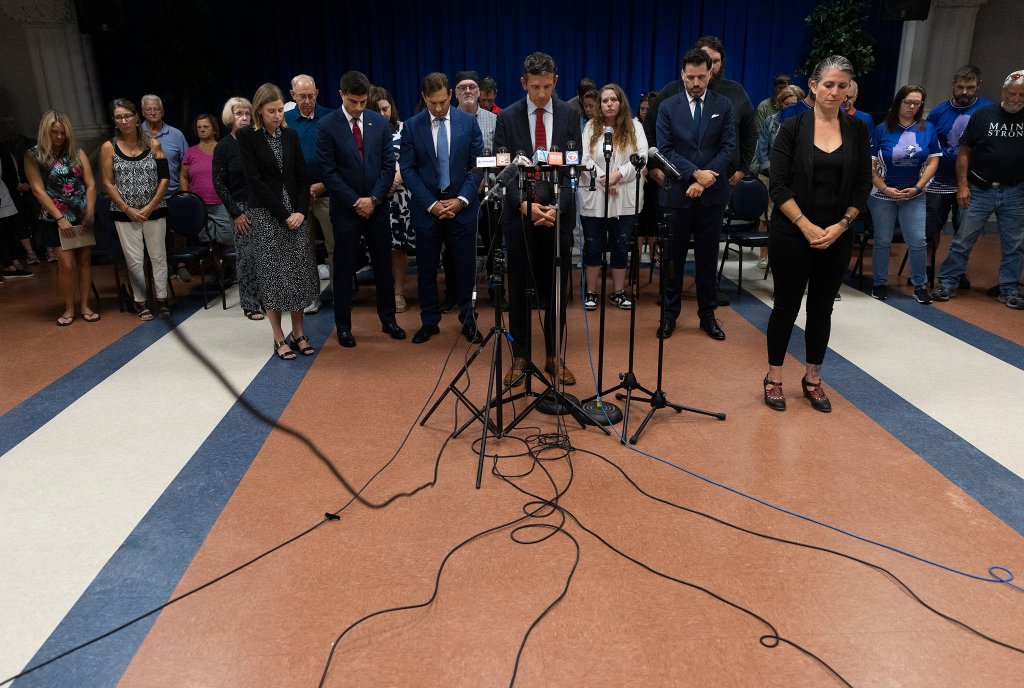
Attorney Jamal Alsaffar, who is representing the Maine group, said Wednesday that the Kelley case drove the Department of Defense to commit to running background checks on service members after failing to do so in that case.
In both Sutherland Springs and Lewiston there was a federal investigation into what happened. But in Lewiston, Alsaffar said, the investigation was the result of pressure from the survivors.
The state of Maine also assembled an independent commission to investigate the shooting.
In addition to hearing sworn testimony from Army officials who encountered the shooter and observed his paranoia and threats to commit violence, the commission also reviewed actions by local law enforcement.
The commission criticized a sheriff’s deputy from Sagadahoc County for failing to use Maine’s yellow flag laws — which allows local law enforcement officers to temporarily remove weapons from someone who could be a threat to themselves or others, with approval from mental health professionals or courts — to remove Card’s weapons despite threats that he might commit a mass shooting.
The survivors’ attorneys said on Wednesday that they believe otherwise.
“One of the things that has become clear as we’ve gathered information, and it is outlined in the complaint, is that the local law enforcement was put in a very difficult position because the Army had so much knowledge and didn’t share that knowledge with local law enforcement,” Brennan said.
Sheriff’s Deputy Aaron Skolfield, who tried to invoke the yellow flag law months before the shootings after hearing from Card’s family, said in an email Wednesday that he’s supportive of the lawsuit and continues to believe he was unfairly blamed by the state’s commission when they should have focused more on the Army.
Skolfield, who said he has sent letters of intent to sue the governor, the commission and the Army for defamation, wrote in the email: “The commission should have recognized that instead of ignoring evidence.”
Staff Writer John Terhune contributed to this report.

